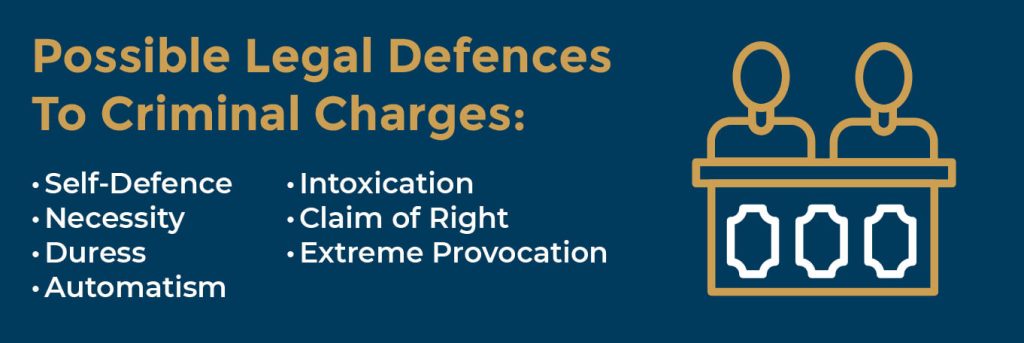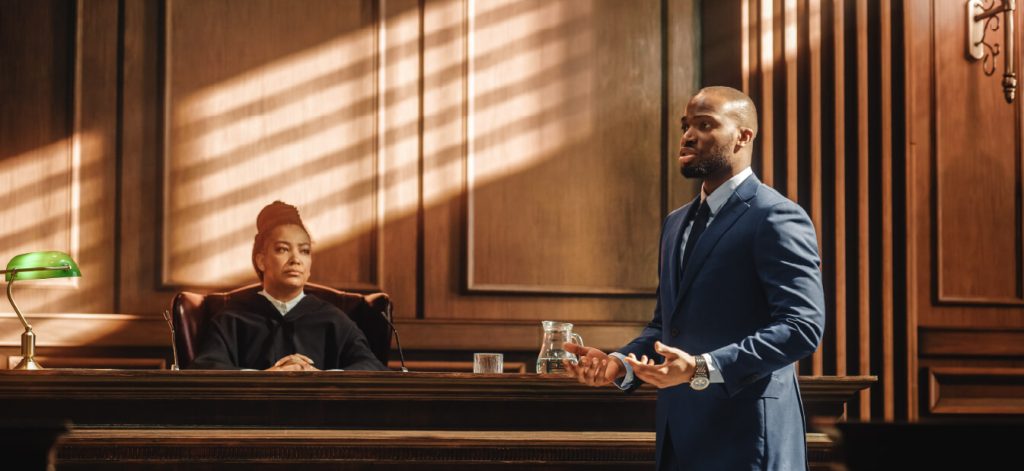
NEWS
6 Types Of Legal Defences To Criminal Charges
Facing criminal charges can be an unsettling and daunting experience, and when the weight of the law bears down on you, it’s natural to feel overwhelmed. But here’s the reassuring truth: just because you’ve been charged with an offence, it doesn’t automatically mean you’re going to be found guilty. Fortunately, there is a range of legal defences to criminal charges that can prove your innocence.
This is where the expertise of an experienced criminal defence lawyer in Sydney becomes invaluable. In this article, we’ll explore six legal defences, explaining when and how they can be employed to ensure you are deemed not guilty.

Self-Defence
In criminal law, self-defence is a legal shield that arises when a person’s actions are aimed at protecting themselves or others from harm. This vital defence strategy is commonly employed in cases involving domestic violence assault charges, common assaults, and grievous bodily harm assaults.
When a lawyer raises the argument of self-defence, it places the burden of proof squarely on the prosecution’s shoulders. They must convincingly demonstrate beyond reasonable doubt that the accused was not acting in self-defence. In such situations, the expertise of an experienced criminal lawyer in Sydney becomes pivotal, as they skillfully advocate for your right to self-defence, ensuring a fair and just outcome.
Necessity
Necessity is a defence that arises when a person commits an unlawful act out of an urgent and compelling need to prevent a more significant harm or danger. This defence is typically invoked in cases involving charges such as trespass or property damage. When necessity is raised, it asserts that the accused had no reasonable alternative but to take unlawful actions to avert a greater disaster.

In such cases, the court carefully examines the circumstances to determine whether the necessity defence is valid. A skilled criminal lawyer can skillfully present this argument, demonstrating that the accused acted out of genuine necessity to protect themselves or others.
Duress
Duress is a commonly used legal defence that explains a situation where an individual is compelled to commit an unlawful act due to the threat of violence or harm to themselves or someone close to them. This defence comes into play in cases where a person is coerced into criminal actions, often involving charges such as robbery or theft.
In such circumstances, an adept criminal lawyer can craft a compelling argument for duress. They’ll work to establish that the accused had no realistic alternative but to comply with the unlawful demands, emphasising the coercive nature of the situation. An experienced Sydney criminal lawyer is your shield against unjust accusations when duress is your defence.

Automatism
Automatism is a state in which an individual performs actions without conscious control or awareness due to a temporary impairment of their mental faculties. This defence is not often used, but it is relevant in cases like involuntary manslaughter or assault, where the accused’s actions were involuntary and beyond their control.
When automatism is raised, it prompts a meticulous examination of the individual’s mental state at the time of the offence. If it’s established that the accused acted without conscious intent or control, the court may recognise automatism as a valid defence. The defence of automatism is heavily reliant upon the presentation of compelling evidence, and highly organised and experienced criminal lawyers have the expertise to support the assertion of automatism with confidence.
Intoxication
Intoxication is a broadly applicable legal defence strategy used by criminal defence lawyers to defend an individual’s actions if their mental capacity was significantly impaired following the consumption of alcohol or drugs. In particular, this defence mechanism often comes to light in cases of assault or public order offences, where the accused’s impaired mental state may impact the intent or awareness of their actions.

If the defence of intoxication is raised, the accused must prove beyond reasonable doubt that they were not only intoxicated at the time of the event. Following this, they must also prove that their intoxication prevented them from forming the intent to commit the crime. It often proves invaluable to call on the expertise of an experienced lawyer in these situations who can assist in developing a compelling argument for a more favourable outcome.
Claim of Right
A defence of claim of right may arise when an individual genuinely believes that they have a legal entitlement to property or assets, even if their belief is later found to be mistaken. This form of legal defence becomes relevant in cases that involve an element of larceny, such as charges like theft or property-related crimes.
When the claim of right is raised, it asserts that the accused genuinely believed they had a legal right to the property in question. The court will assess the sincerity of this belief, and if it’s deemed genuine, it can mitigate criminal liability. It is often important to present all necessary evidence and arguments to support the assertion of a claim of right to secure a more favourable outcome.
Extreme Provocation
Extreme provocation is a form of criminal defence that occurs when an individual reacts violently due to circumstances that would provoke a reasonable person to lose self-control. This defence is only available in the event of a death and the accusation of murder, and if successful, it works to reduce the sentence an individual faces from murder to manslaughter.

When this defence is raised, the accused aims to establish the fact that their actions were the result of a genuine loss of control that was provoked by the circumstances. Then, the court must examine the evidence and determine whether the circumstances were as extreme as presented and whether they directly led to their alleged offence. With such high stakes, it’s crucial to call on the expertise of a reputable criminal lawyer to deliver the best possible defence.
Select The Right Legal Defence For Your Case
In the world of criminal law, several legal defences can be used to assist individuals facing charges. From self-defence to extreme provocation, these defences offer critical avenues to assert one’s innocence. However, the path to justice is often more accessible when individuals call on the expertise of a seasoned criminal defence lawyer. They have the knowledge to navigate the complexities of each case, strategically employing the most suitable defence to secure the best possible outcome.

